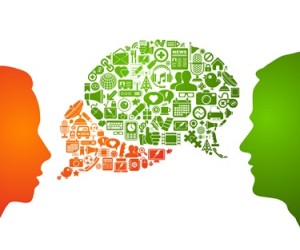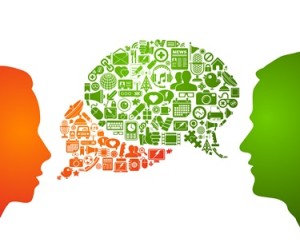 Earlier this month, in what many consider the copyright case of the decade, the Supreme Court released its much-anticipated decision in Google v. Oracle. In it, the Court ruled that Google’s copying of 11,500 lines of declaring code from Java SE for use in Google’s Android platform, was fair use. Having recently reviewed the history of the fair use defense in copyright infringement cases, we now turn to the case itself.
Earlier this month, in what many consider the copyright case of the decade, the Supreme Court released its much-anticipated decision in Google v. Oracle. In it, the Court ruled that Google’s copying of 11,500 lines of declaring code from Java SE for use in Google’s Android platform, was fair use. Having recently reviewed the history of the fair use defense in copyright infringement cases, we now turn to the case itself.
Articles Tagged with google
News of Note for the Internet-Minded (11/12/19) – AI Biases, Deepfake Policies and Millions of Medical Records
Apple gets around to AR, the NHL enters esports, the Internet of Things may bring new meaning to “workers unite,” so many medical records, and more …
News of Note for the Internet-Minded (7/12/19) – Non-Fungible Tokens, VR Aptitude Tests and Alexa Hears You!
Prime phishing day is upon us; Google hangs on to social media aspirations by a Shoelace; the prospects of Apple’s AR glasses get cloudy; and more …
News of Note for the Internet-Minded – 9/13/18 – Alexa the Witness, Copyright’s Taste Test and ToSDR
Algorithms behave pretty much as they are programmed to (for good and ill); augmented reality continues to seep into the auto industry; humans strive for immortality; and more …
News of Note for the Internet-Minded – 11/9/17 – Harry Potter Go?, Chatbot, Esq. and DARPA
But Is It Okay to Google His Name? T-Pain Not Guilty of Genericide
 “Baby it’s okay, you can Google my name.” This line from T-Pain’s hit, “Bottlez,” became a focus in a recent Ninth Circuit trademark case on my favorite intellectual property issue: genericide. Among other evidence, the court considered if T-Pain’s use of “Google” showed that the Google trademark had become genericide’s latest victim. Genericide occurs when the public appropriates a trademark and begins using it generically for a type of goods or services, as opposed to a source of goods or services.
“Baby it’s okay, you can Google my name.” This line from T-Pain’s hit, “Bottlez,” became a focus in a recent Ninth Circuit trademark case on my favorite intellectual property issue: genericide. Among other evidence, the court considered if T-Pain’s use of “Google” showed that the Google trademark had become genericide’s latest victim. Genericide occurs when the public appropriates a trademark and begins using it generically for a type of goods or services, as opposed to a source of goods or services.
News of Note for the Internet-Minded (2/17/17) – DeepMind, IoT and Graphic ToS Representation!
Social Media Platforms and a Company’s Right to Free Expression
Political campaigns have increasingly turned to social media as a channel to reach voters. Social media not only has the power to reach audiences numbering in the billions, but it also has the power to change the behavior of its users. This far-reaching influence is nothing new—advertisers pay lots of money to use these channels to sell and market their products to targeted audiences. But, could this power be used to sway voters, and is there anything that prevents social media companies from getting into the game of politics?
Algorithms and the Perception of Bias
 On Saturday, July 23, Facebook acknowledged its anti-spam systems had briefly and accidentally blocked links to WikiLeaks files containing internal Democratic National Committee (DNC) emails. WikiLeaks had released 19,000 leaked documents from the DNC containing communication between Democratic Party officials on Friday, July 22. The following day, people tweeted screenshots of an error message they received when attempting to post links to the leaked documents: “The content you’re trying to share includes a link that our security systems detected to be unsafe.”
On Saturday, July 23, Facebook acknowledged its anti-spam systems had briefly and accidentally blocked links to WikiLeaks files containing internal Democratic National Committee (DNC) emails. WikiLeaks had released 19,000 leaked documents from the DNC containing communication between Democratic Party officials on Friday, July 22. The following day, people tweeted screenshots of an error message they received when attempting to post links to the leaked documents: “The content you’re trying to share includes a link that our security systems detected to be unsafe.”
 Internet & Social Media Law Blog
Internet & Social Media Law Blog




